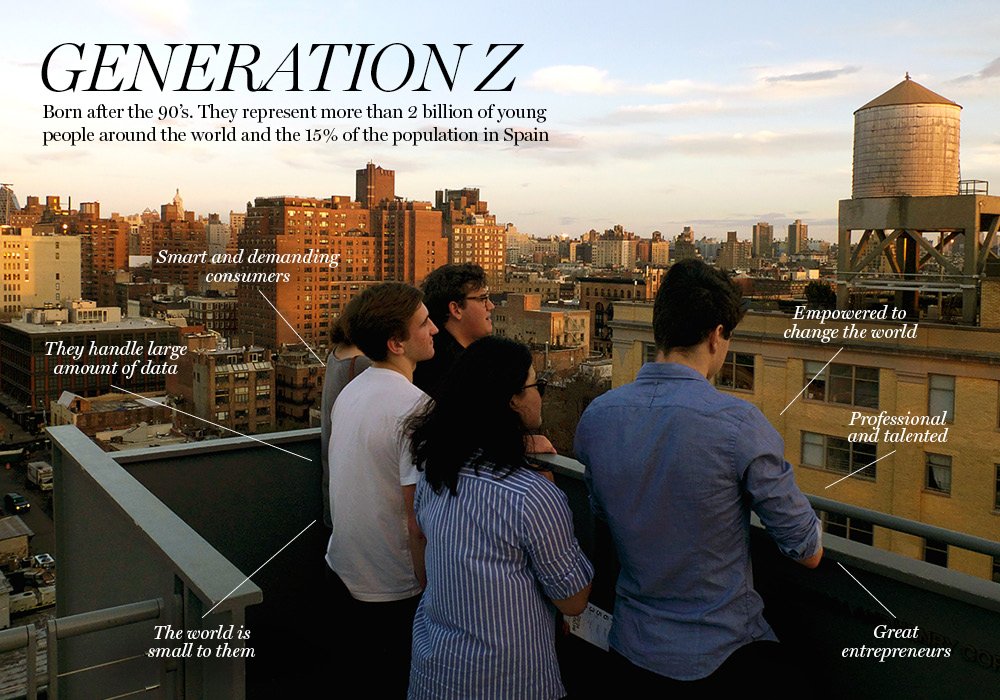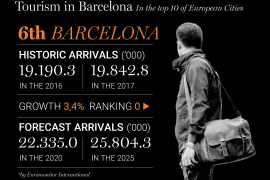[dropcap letter=”E”]
ven though you might feel young and can be up to date at any age, if anyone has the spirit to learn and and for continuous innovation, it is a new generation, now reaching adulthood, born in the digital era, who live perfectly alongside that philosophy. For them it is natural, because they have grown up to the rhythm of the accelerated boom of new technologies. They are Generation Z, born after the digital explosion of the 90s, who are progressively coming into all areas of society, the economy and labour.
They are talented professionals, great entrepreneurs, intelligent and demanding consumers, who can manage huge amounts of data themselves and are empowered to change the world if necessary. Thus, Núria Vilanova and Iñaki Ortega point out in their book Generación Z (Plataforma Actual) that over 2 Bn people in the world belong to this generation (in Spain they already represent 15% of the total population), and that they have “very powerful tools at their disposal to change their environment or the purpose to which they are called.” For the authors, “it is the first generation that has assumed, ever since they reached the age of reason, that the world has become small, that diversity is consubstantial to any modern society and that democratic development, together with technology, is unstoppable.”
GENERATION Z SETS CONSUMER TREND
The big tech brands, like Honor, the leading e-brand in mobile devices operating under the Huawei umbrella, have been created specifically to meet the needs of native digital users, with products that inspire action, foster creativity and user experience. The aim of these brands, however, is not to focus on a young market niche, but to focus on it as a way to reach many more user profiles. Deep down, young people are their brand ambassadors. As expounded by Honor Spain’s General Manager, Javier Palacios, “today, it is the youngest public who sets the trends, and they are also very digital in their buying habits. You can establish a dialogue with them through online channels that makes offers to the consumer more welcome.”
Along these same lines, Mireia Montaña, a professor of communication at UOC[—Catalonia’s Open University—]analyses in their COMeIN magazine, that although “the figure of the influencer is basic when impacting on these young people, they say that they prefer to receive advice from young influencers like themselves, instead of from celebrities,” and that, in short, “they need to feel that they are being spoken to as equals.”




















